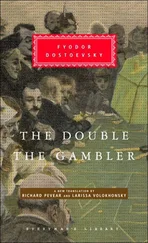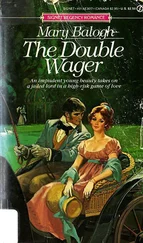“Do you still have the letters?”
“Oh, I doubt it. We lost touch a long time ago.”
“I’m only here for a couple of days, so I think I’ll risk the telephone,” Laurel said, and Rebecca gave her Pamela Marshfield’s telephone number-although, because it was unlisted, Laurel had to promise that she would share it with no one. And then, as soon as they had hung up, she dialed the Marshfield estate in East Hampton.
LAUREL NEVER UNDERSTOOD precisely what Tom Buchanan saw in Myrtle Wilson, the woman with whom Tom had that ridiculous affair in 1922, and who Daisy would accidentally run over while driving her own lover’s car. Tom Buchanan might not have been very nice-he might, in fact, have been an abusive bully who once broke Myrtle’s nose-but he was handsome and he was rich. Laurel knew the house. She knew where he had kept his polo ponies. But Myrtle Wilson? She had never met anyone who actually knew her. But clearly the woman was neither particularly bright nor especially kind: She was a dowdy screecher with a tendency to put on airs. She wasn’t even all that attractive. Obviously, she didn’t deserve to die the way that she did. No one did: Laurel, too, had nearly been killed by a car-run over while clipped to her bike. Like Myrtle, she had been left for dead as the vehicle sped away. But Laurel still didn’t view Myrtle as a kindred spirit. She just didn’t see why a man like Tom might be attracted to a woman like her. She always presumed that his next lover was a more predictable trophy catch.
Laurel found herself thinking about Tom and Daisy most of the next afternoon, Sunday, since on Monday morning she was going to meet their one daughter. A woman, either a nurse or a personal assistant of some sort, took her call on Saturday, put her on hold, and passed along her message to Mrs. Marshfield. Laurel actually apologized for phoning instead of writing. But she explained who she was and told the woman that she had some snapshots of the old Buchanan estate and what she believed was Mrs. Marshfield when she’d been a little girl. Laurel added that she wanted very much to bring them by and introduce herself. She made no mention of the boy in one of the photos or Bobbie Crocker. After a moment of silence, the woman returned and said that Mrs. Marshfield would be delighted to see her on Monday at eleven.
She spent most of Sunday in the playroom in her cousin’s home. Martin was in a 42nd Street phase, and so they devoted a sizable part of the afternoon to tap dancing. His mother had recently found him a black top hat and cane at a vintage clothing store, and the two of them sang “Young and Healthy” a half-dozen times. Martin was almost a head shorter than Laurel, the difference in their heights attributable both to his Down syndrome and the reality that Laurel was a lanky five-nine. He had deceptively broad shoulders, however, and one of those male frames that seems designed for formal clothes. He looked dashing in blazers, and danced with a charismatic abandon. Laurel had the sense from the embraces Martin received from the young women he knew with developmental disabilities that he had the potential to be a real heartbreaker, but the truth was that those young women-like the young men-hugged absolutely everybody. Whenever she had been a volunteer timekeeper for the Special Olympics, an awful lot of the athletes sacrificed precious seconds so they could wrap their arms around her and tell her how much fun they were having or how much they loved her.
“You dance divine,” said Martin gallantly. Then, perhaps because he had just said something of emotional consequence and was embarrassed, he added quickly, “You’re so silly,” a non sequitur he used to fill any conversational silence that made him uncomfortable. That night the two of them watched Snow White for the third time together that Laurel could recall, skipping all the scenes with the witch and the apple and the thunder that Martin found frightening.
Laurel felt it was the perfect way to spend the afternoon and early part of the evening. The year after she had graduated had been a leap year, and so the actual anniversary of the attack would not occur until tomorrow. But the assault had taken place on a Sunday, and so this year she was especially grateful to be away from Vermont. She loved the Green Mountains, but as sunset approached she found herself short-winded and anxious. She was relieved she was six hours to the south-in a world where she could tap-dance with her joyful cousin, while wondering about a series of eighty- and eighty-five-year-old snapshots of a romanticized bootlegger and a mysterious little boy.
PATIENT 29873
…speech is rapid and intense, but can be easily interrupted-not at the level of pressured speech. (Note: Patient speaks/socializes very little outside interviews.) Inferred mood is moderately irritable, affect full, thought process coherent.
Thought content: denies ideas of hurting self or others. Still preoccupied with unusual beliefs, not willing to discuss much else. Denies hearing voices-though occasionally observed on ward talking to self (insists just “reviewing” material).
Beliefs still cause functional impairment; little interaction with others, either in hospital or with friends outside, evidently out of concern that discussing beliefs would lead to disagreements and feeling invalidated. Moreover, appears unwilling to focus on practical issues such as future community treatment and discharge planning.
From the notes of Kenneth Pierce,
attending psychiatrist,
Vermont State Hospital, Waterbury, Vermont
A GIRL, ELEVEN, SQUATTED on the ground in the apple orchard and held in her hand the McIntosh she had just picked from one of the lowest branches of the tree. Then she took a bite, surprised at both how tart and how juicy it was. She was wearing an elegant jumper the color of jade, with a horseshoe-shaped headband that matched it. Her hair still had the sweet, clean aroma of her strawberry shampoo.
Her sister, six, now tried to roll toward her, but the hill in this part of the orchard really wasn’t very steep. Moreover, the ground was littered with fallen apples. Consequently, the younger girl had to push her way toward her big sister with her elbows and her feet, and she moved more like a box than a wheel on the small incline.
“That’s stealing, Marissa,” she said, rising and motioning toward the slightly gnawed apple in her older sister’s hand. In the sky behind her were undulating waves of white clouds, a series of wings against an otherwise blue sky. It reminded Marissa of the venetian blinds in the windows of the bathroom in her father’s apartment.
“What is?”
“Eating an apple that Daddy didn’t pay for.”
Marissa sighed and took another bite. This time she chewed with a great, exaggerated motion, moving her chin like a mechanical stamp press. She noted that the younger girl’s mouth was covered with caramel from the candy apple she had eaten when they had first arrived at the orchard-one their father had paid for-and the front of her white sweatshirt was dotted with spots from the rotting apples in which she had just rolled. She looked like a kid from a TV commercial for a laundry detergent.
“I should tell,” the younger girl added.
“You should do a lot of things,” Marissa said after she had swallowed-again with an obvious dramatic flourish. She had been acting with grown-ups, most bankers and teachers and hairdressers by day, in community theaters for three years now. She hoped that someday she would get to do even more: She fantasized about Broadway. “Maybe you should start by not rolling around on the ground like one of those pathetic messy kids from the preschool,” she continued. “Or maybe you should think about washing your face every couple of months.”
Читать дальше












